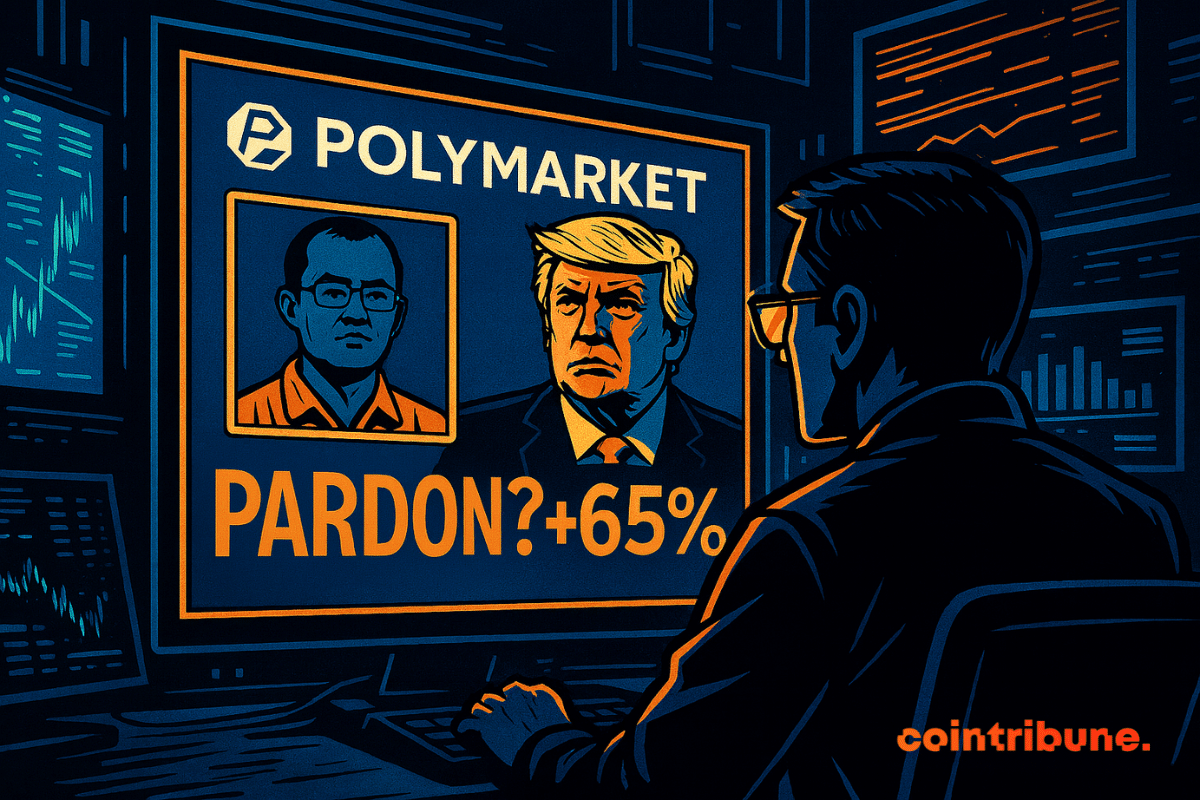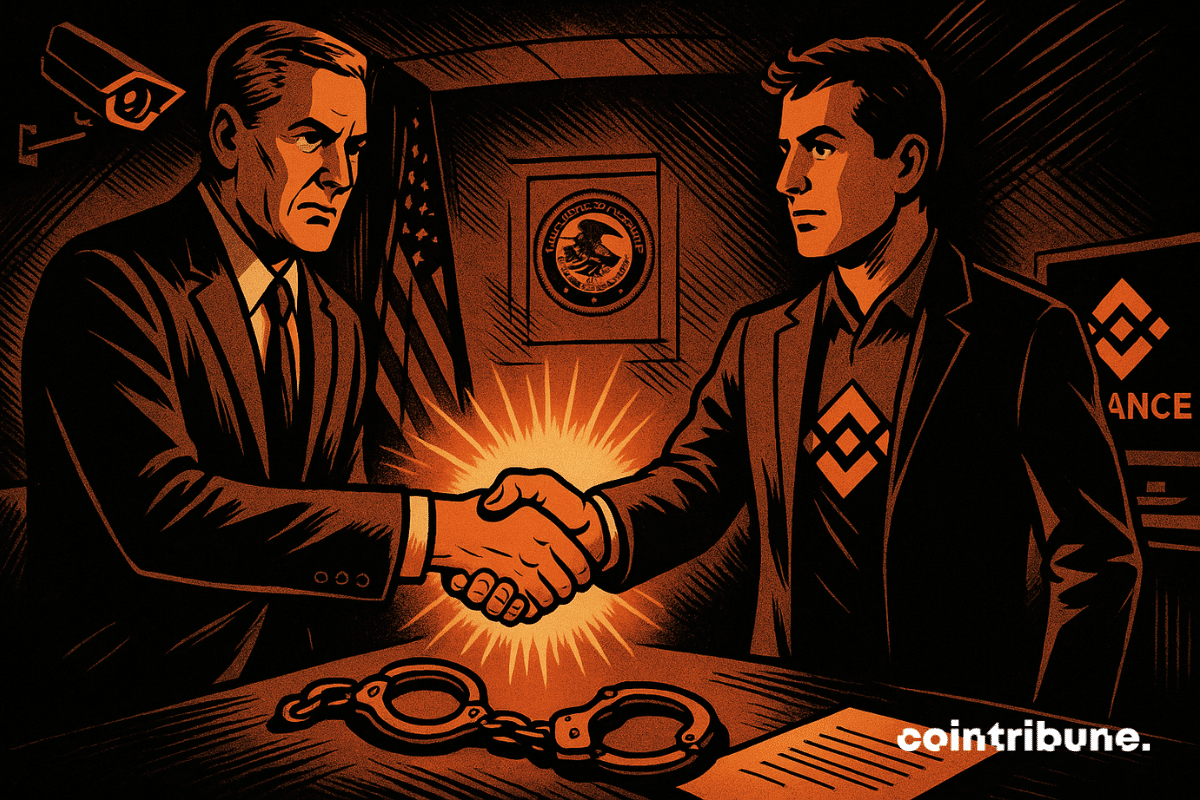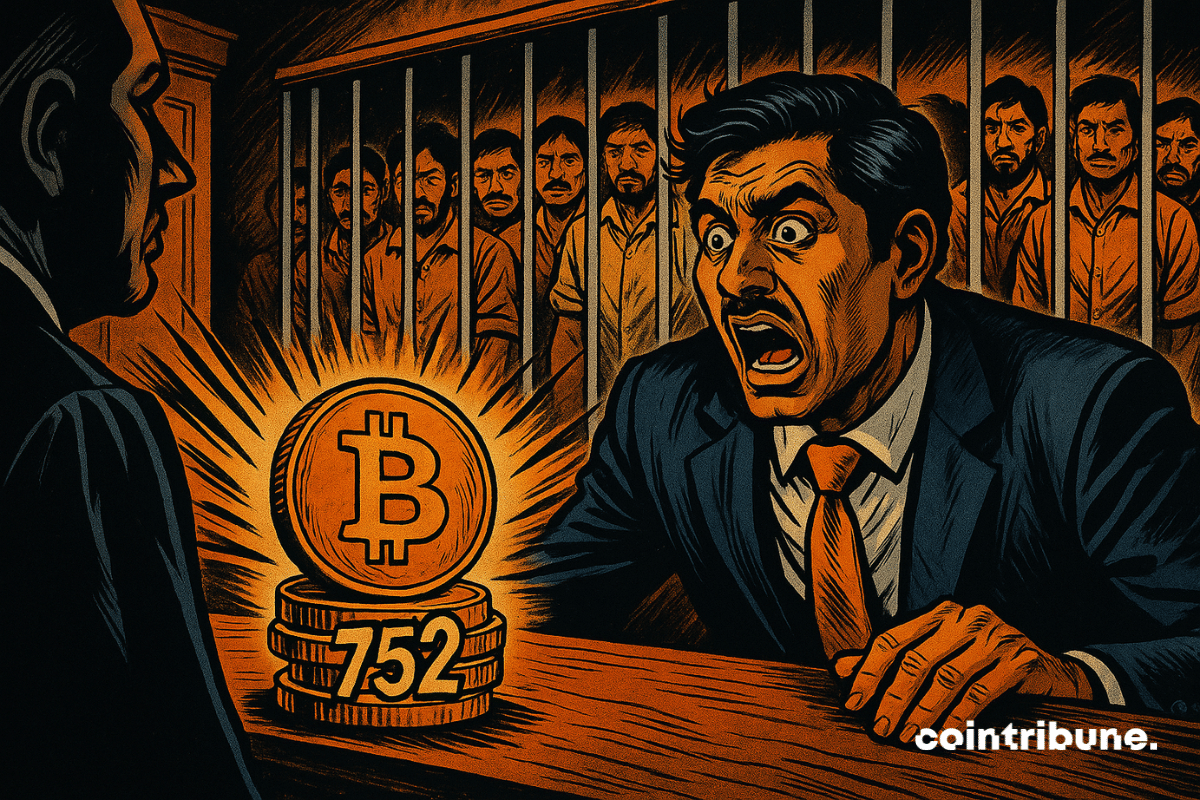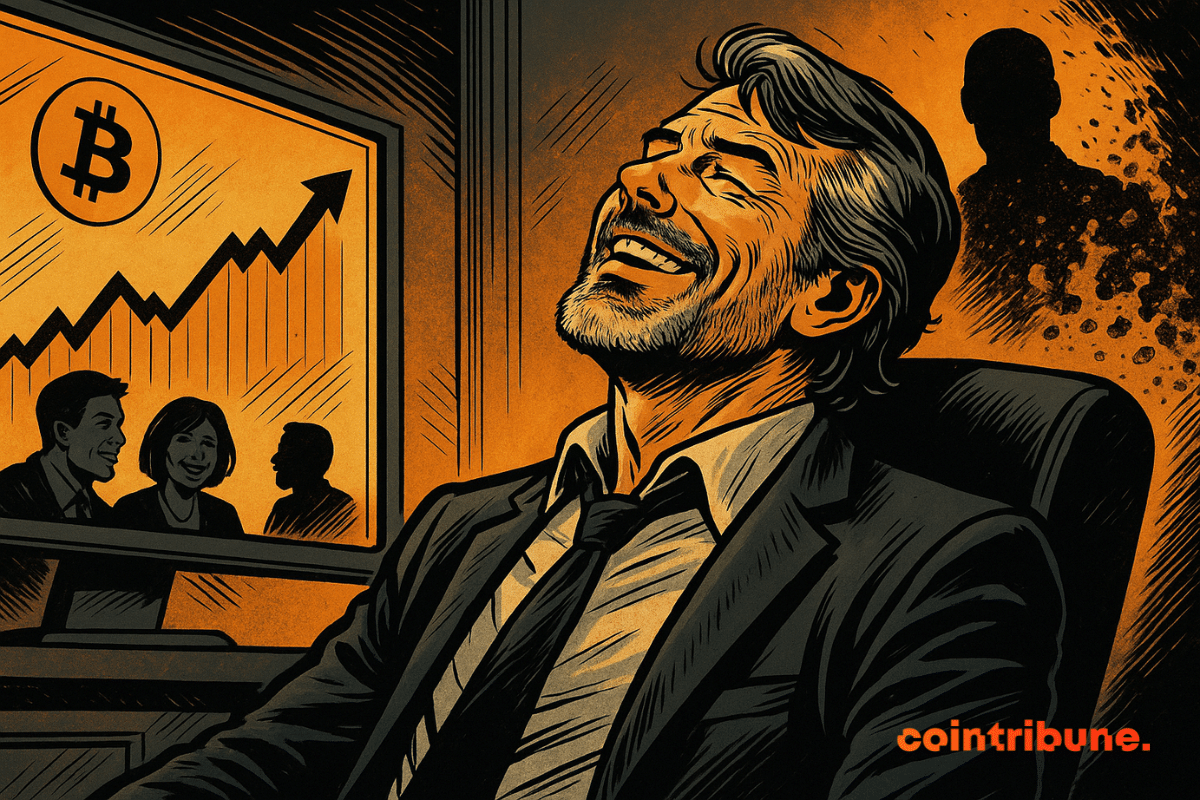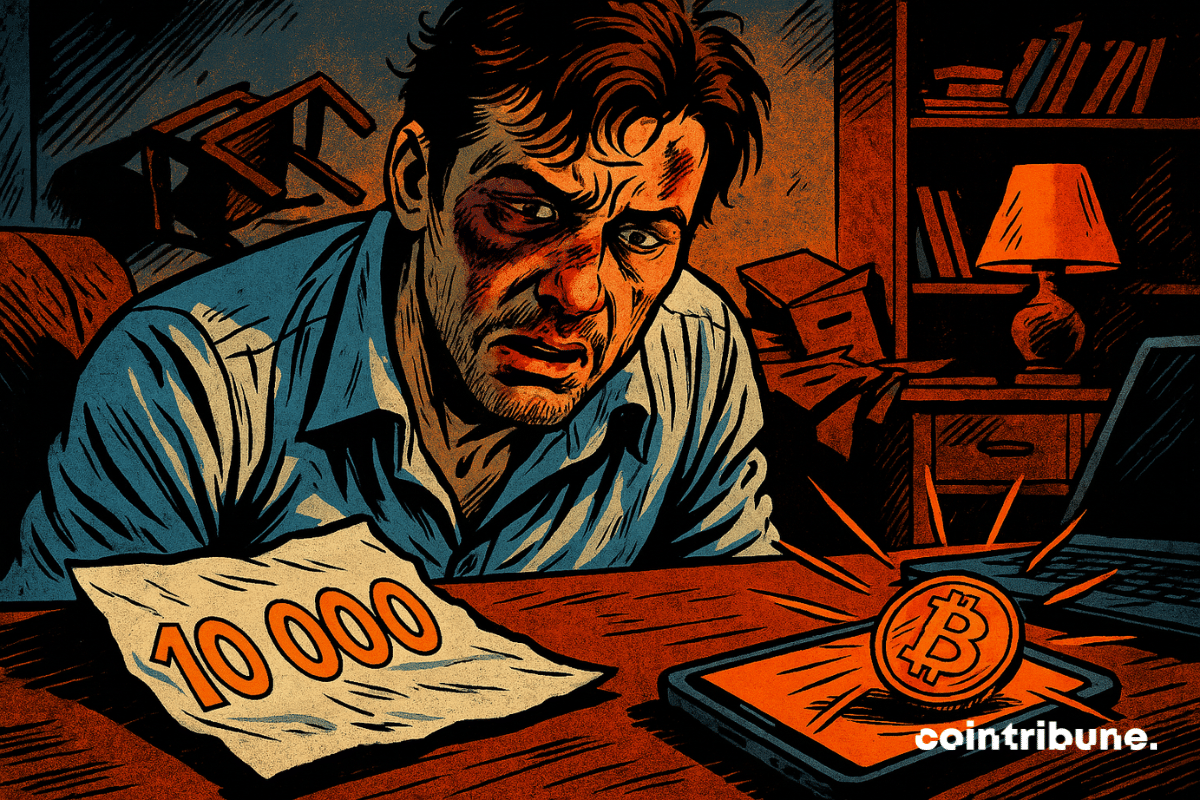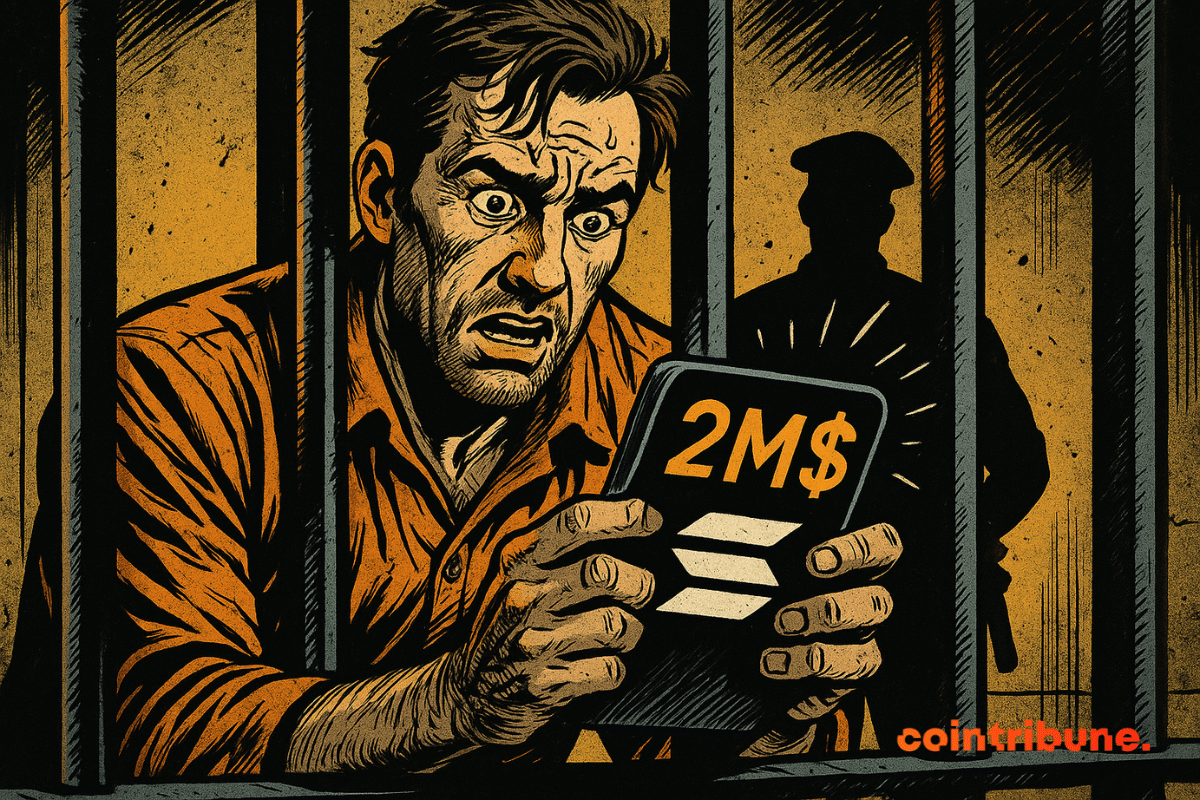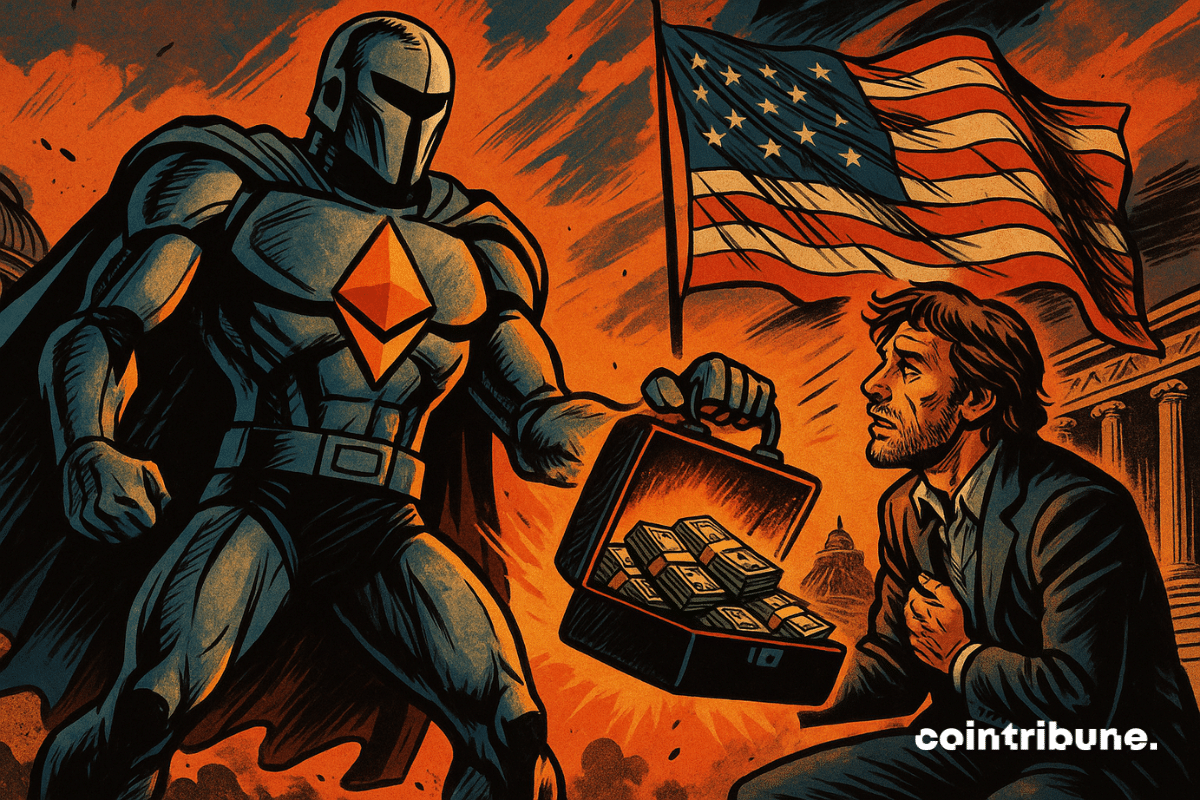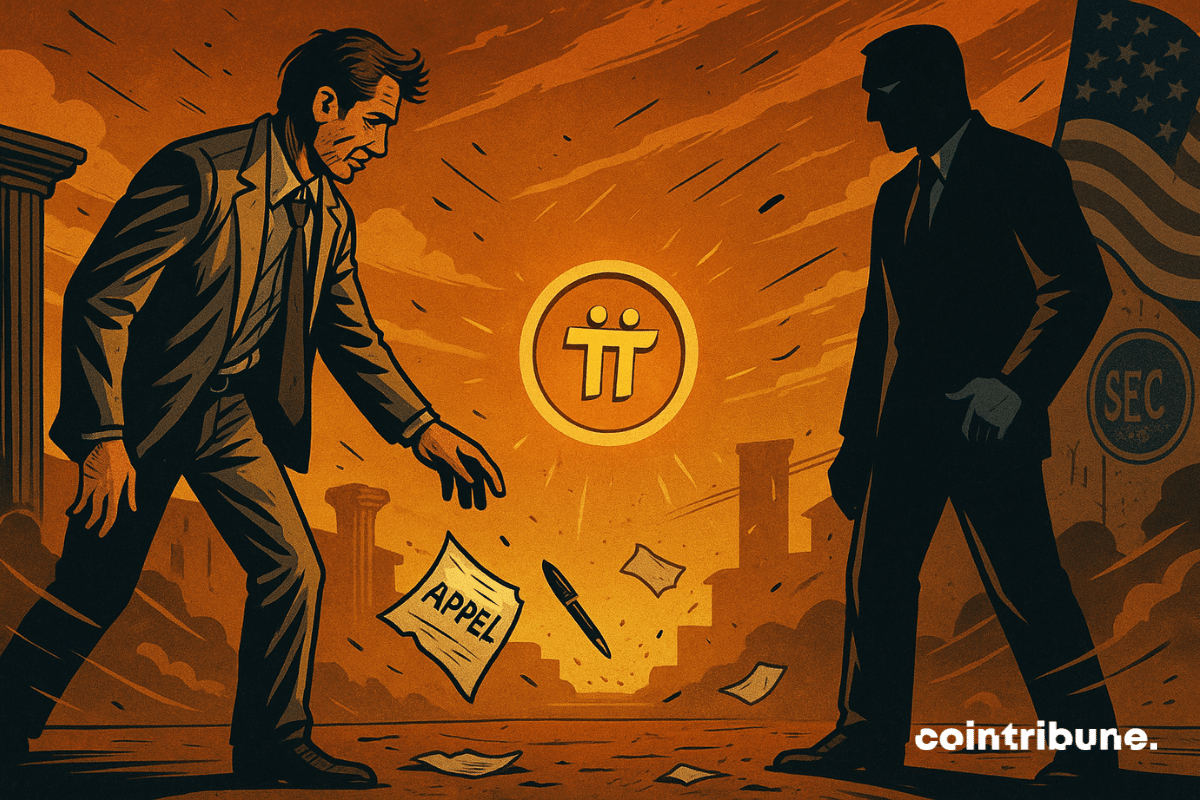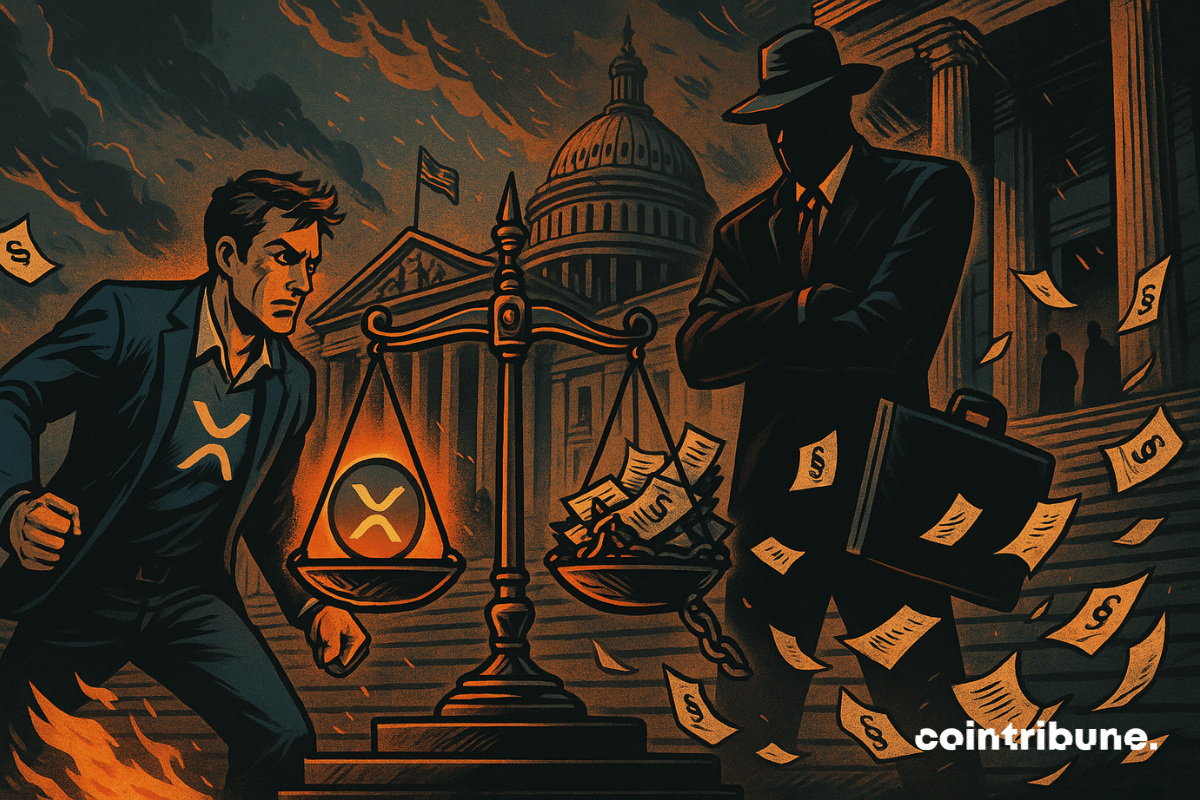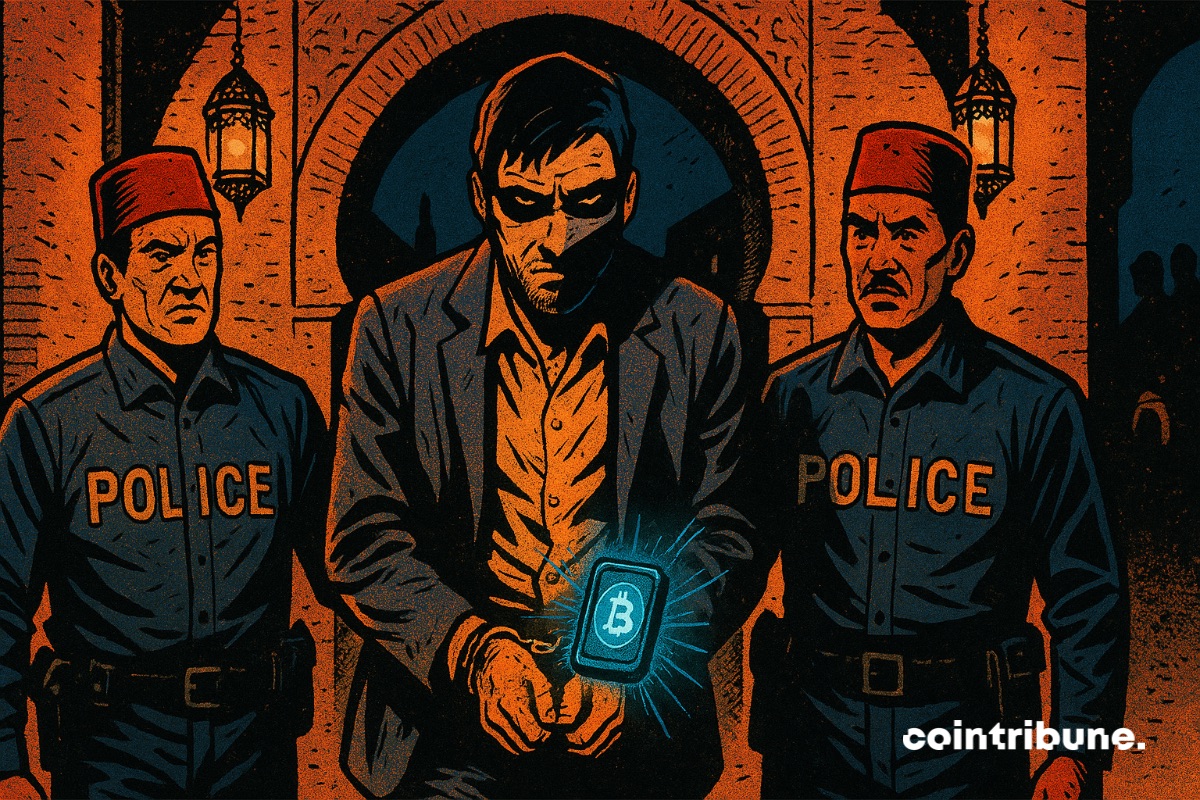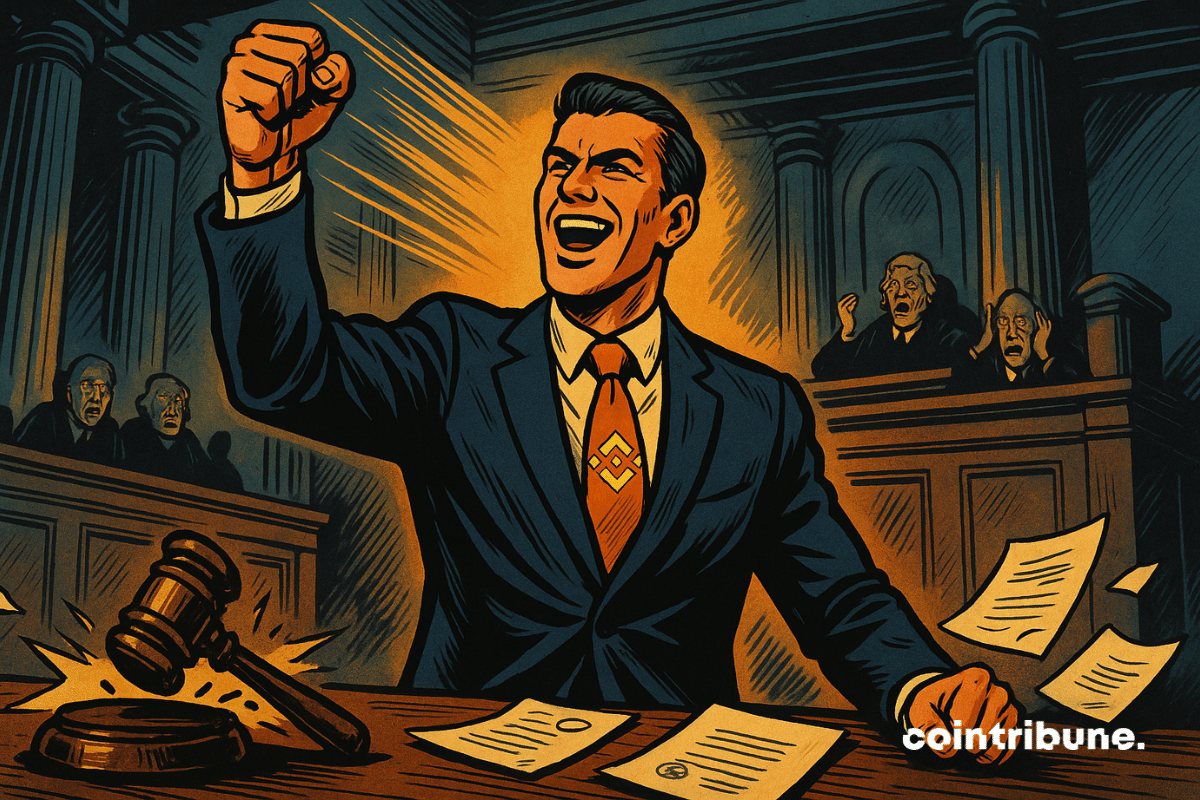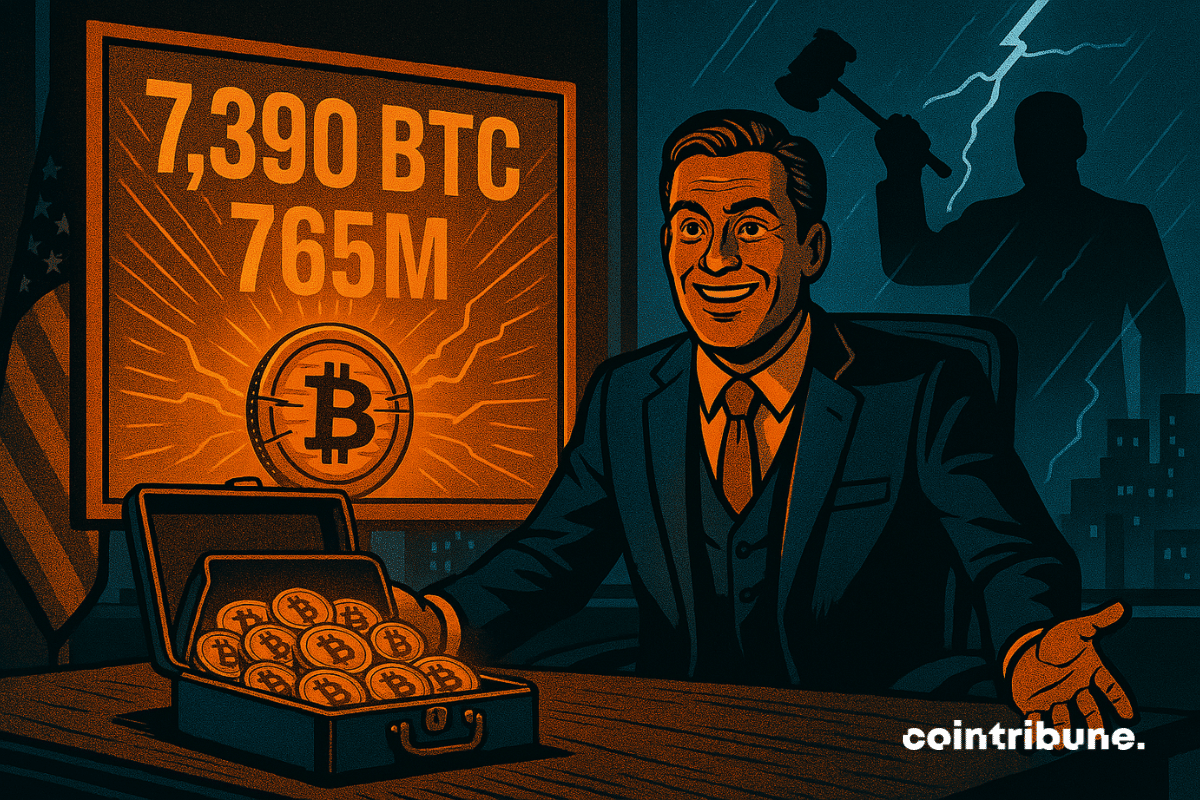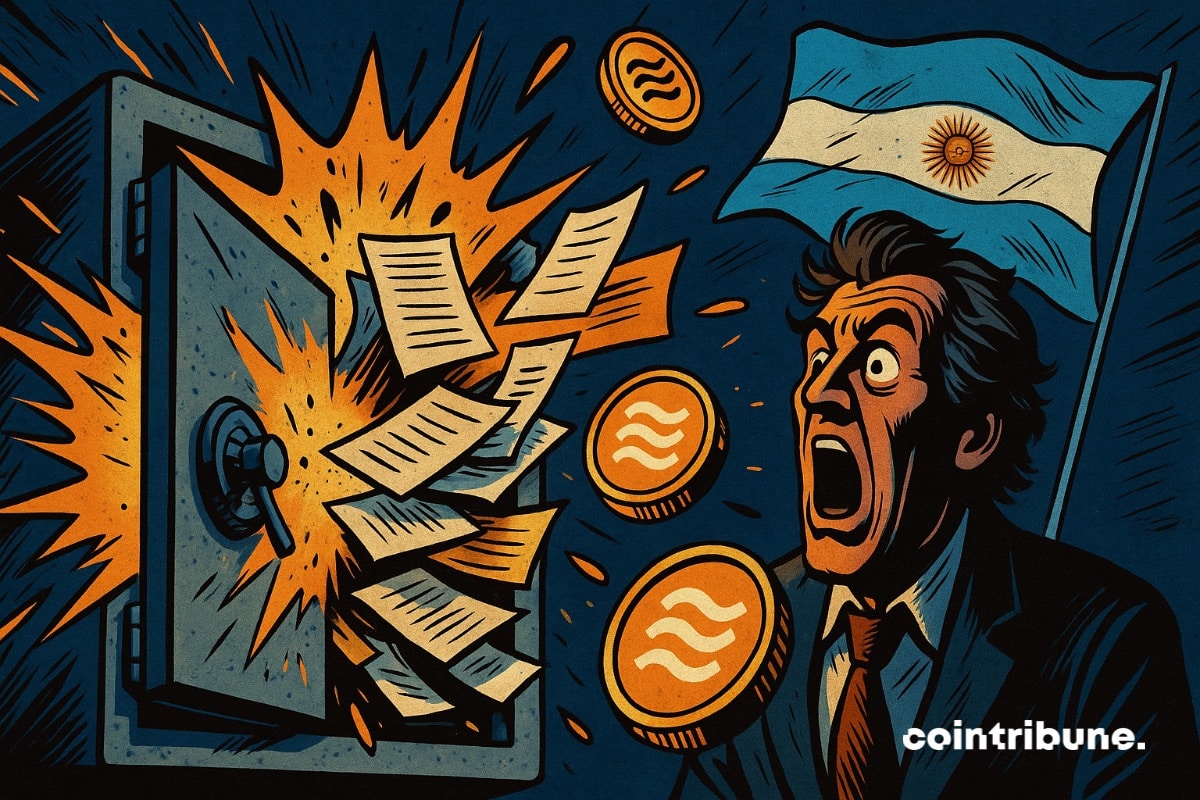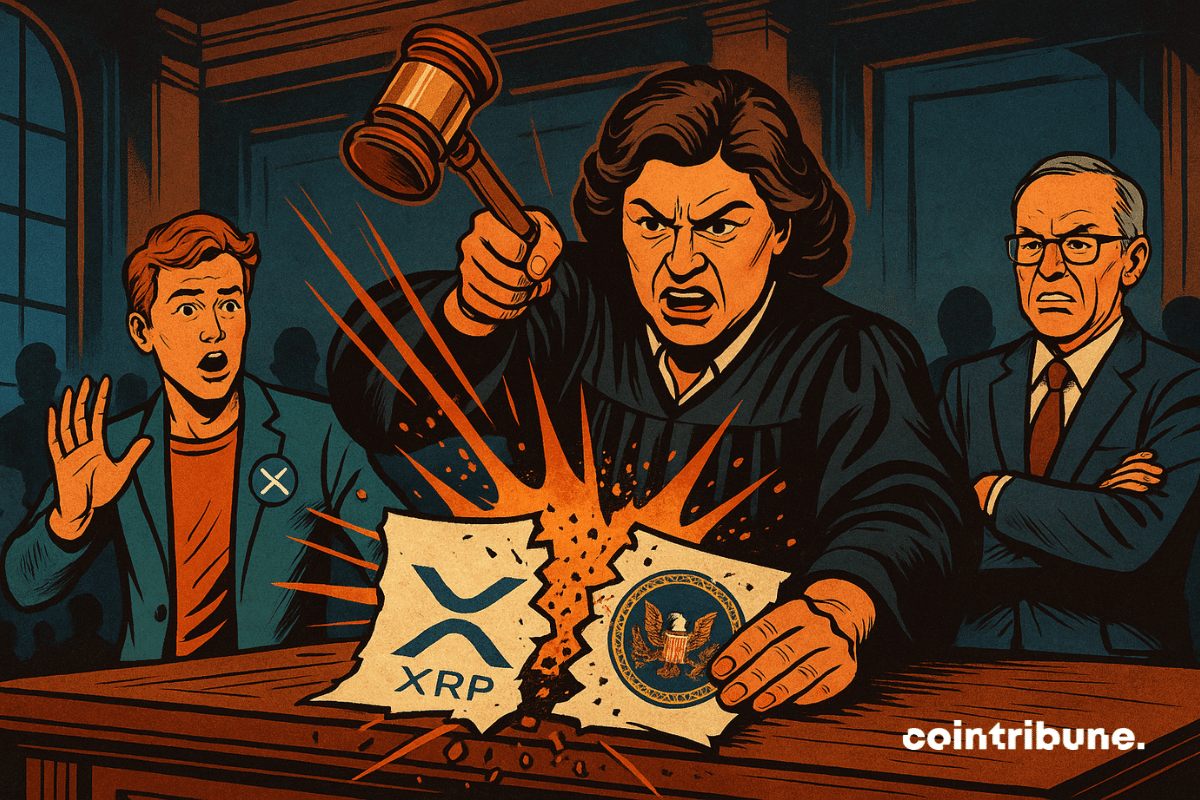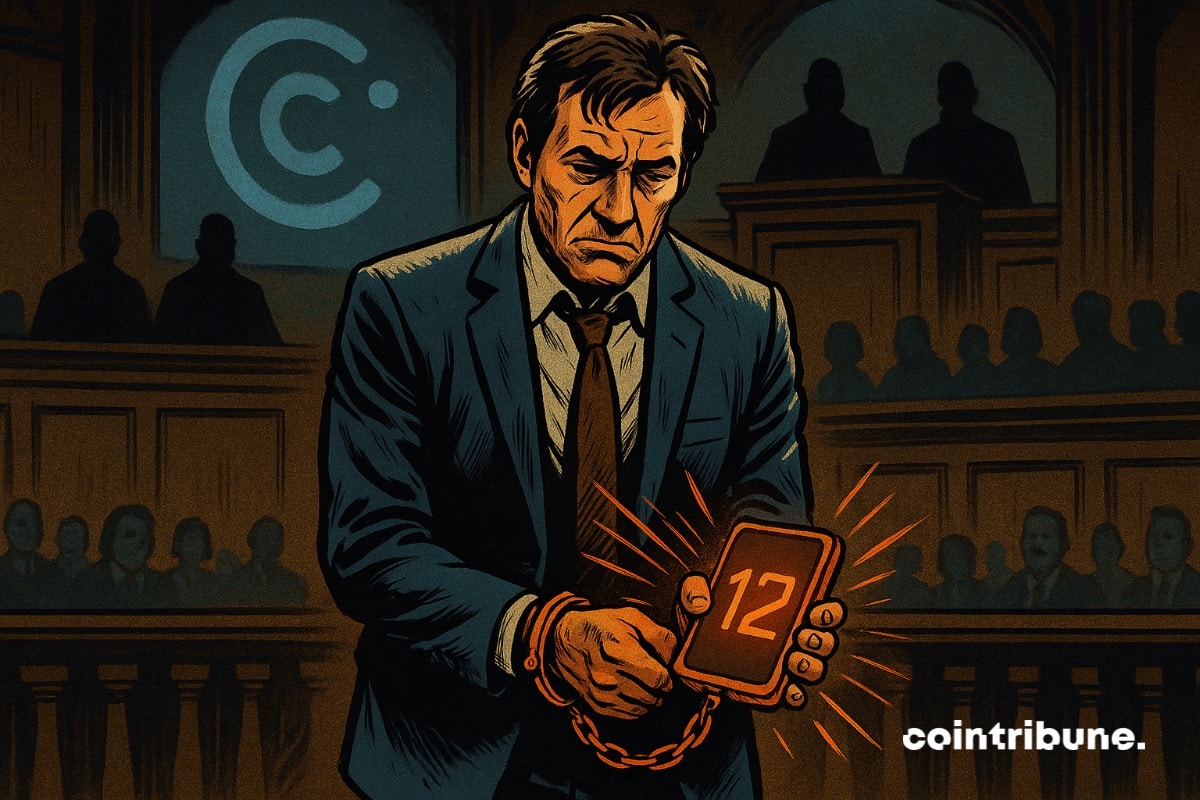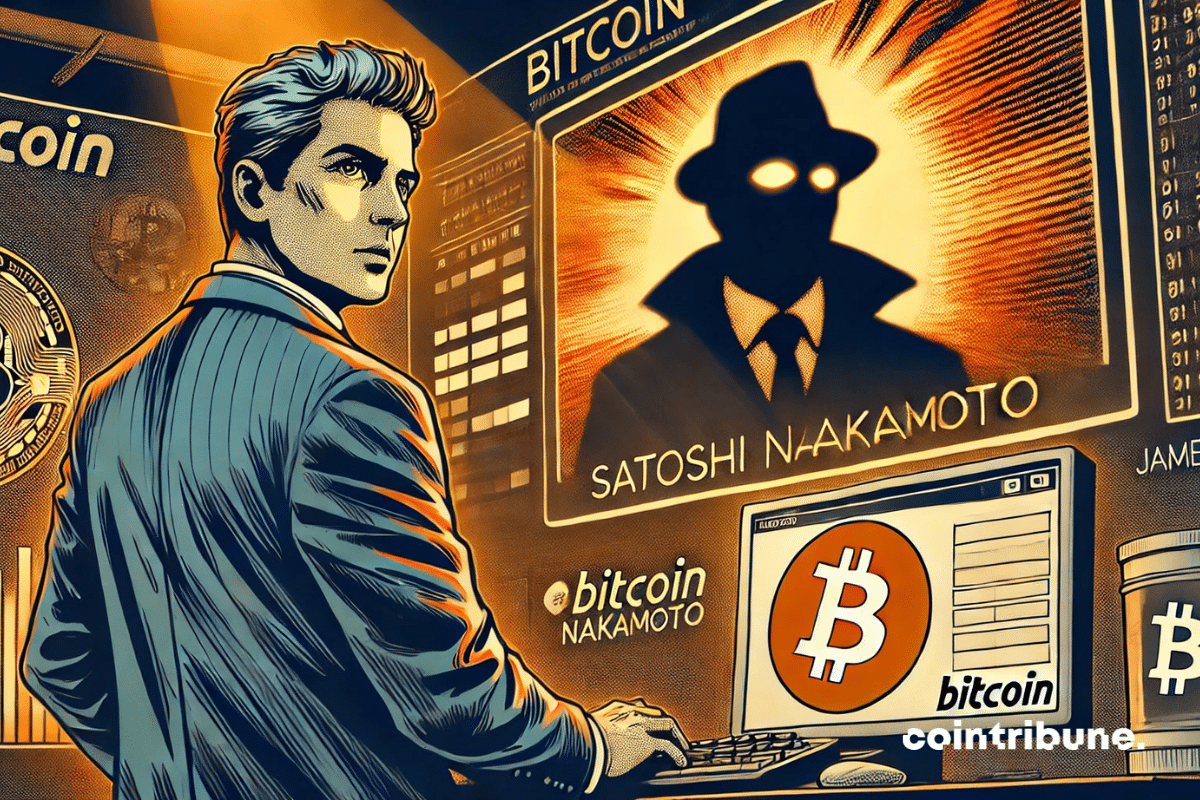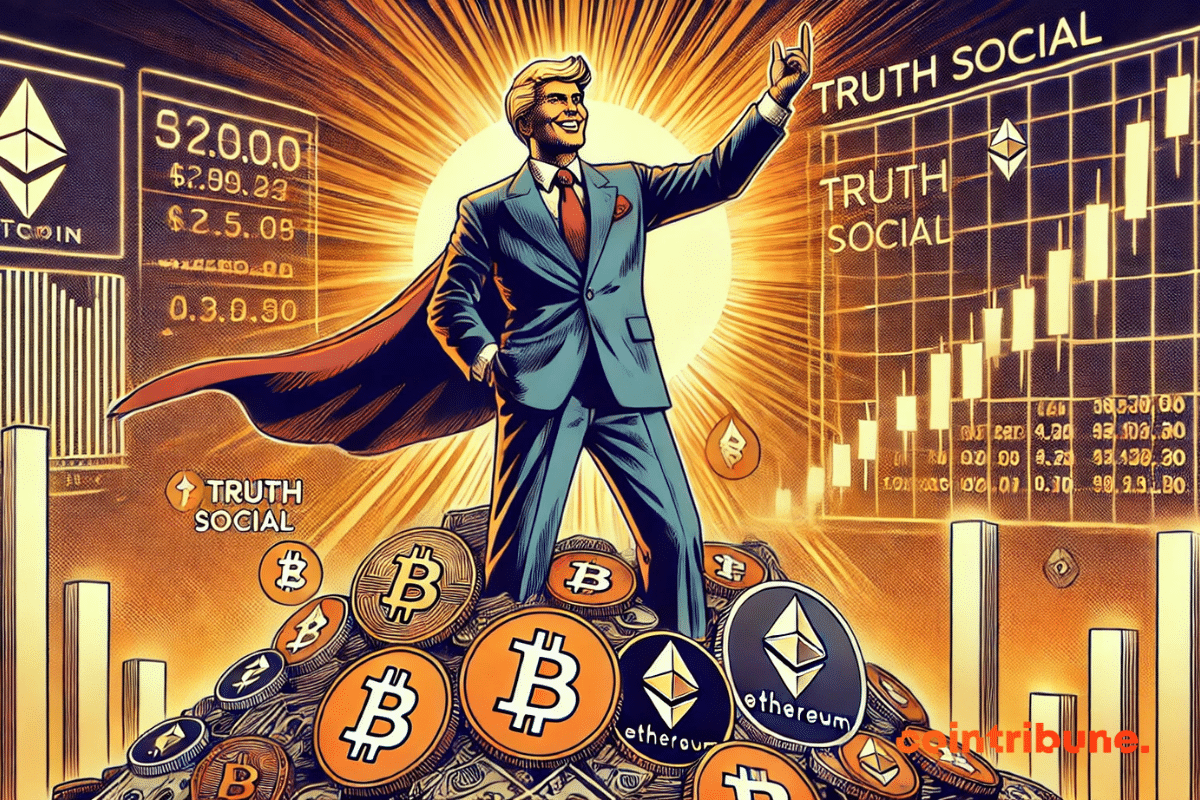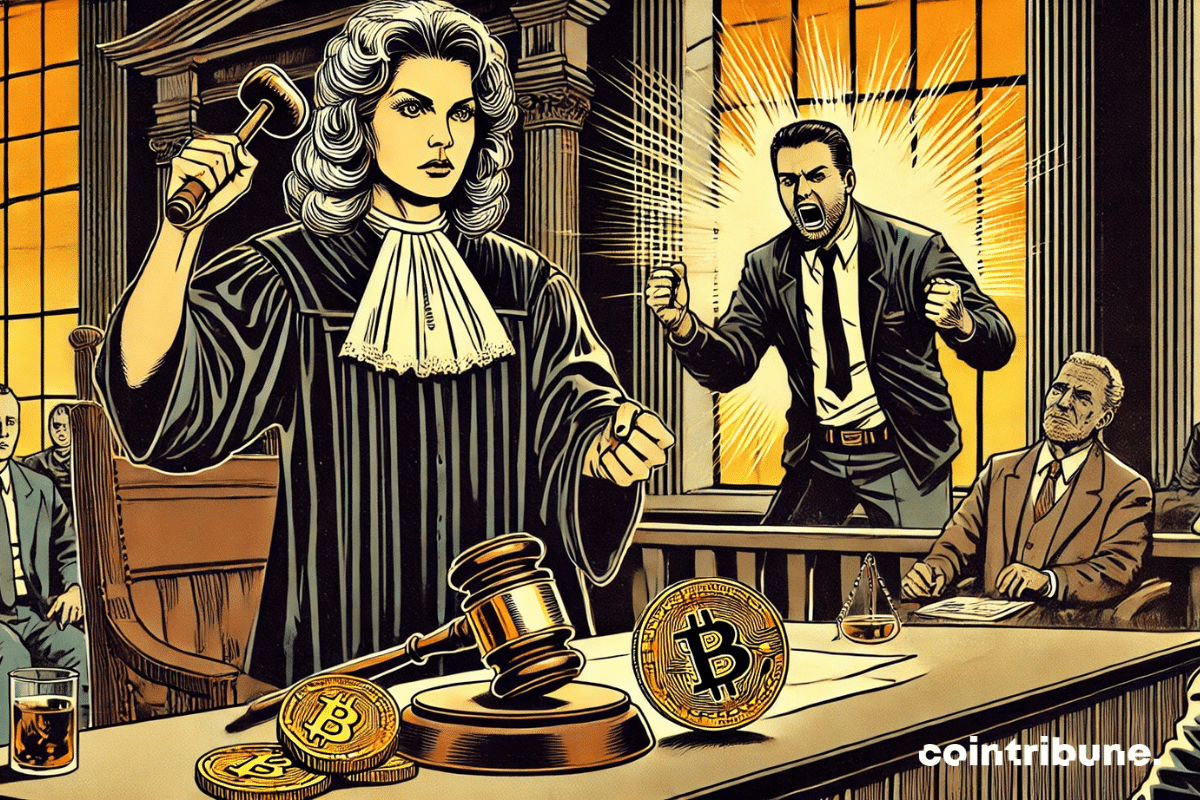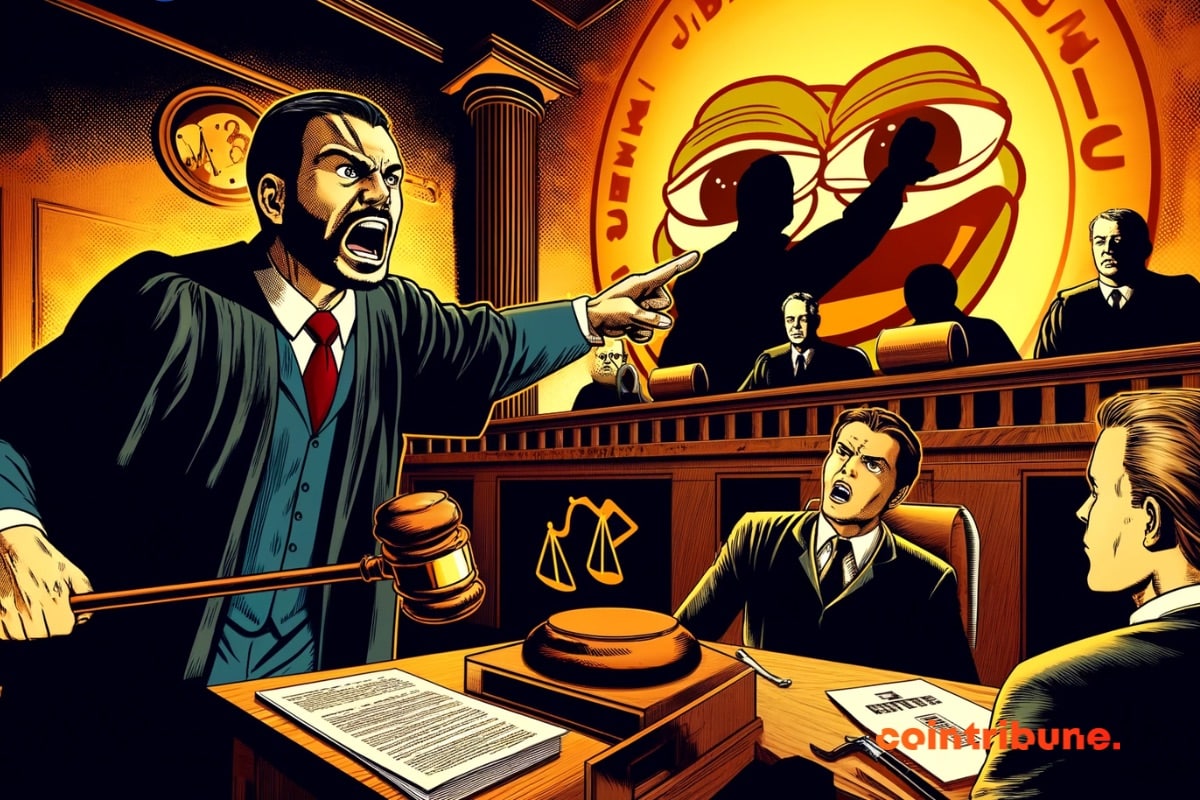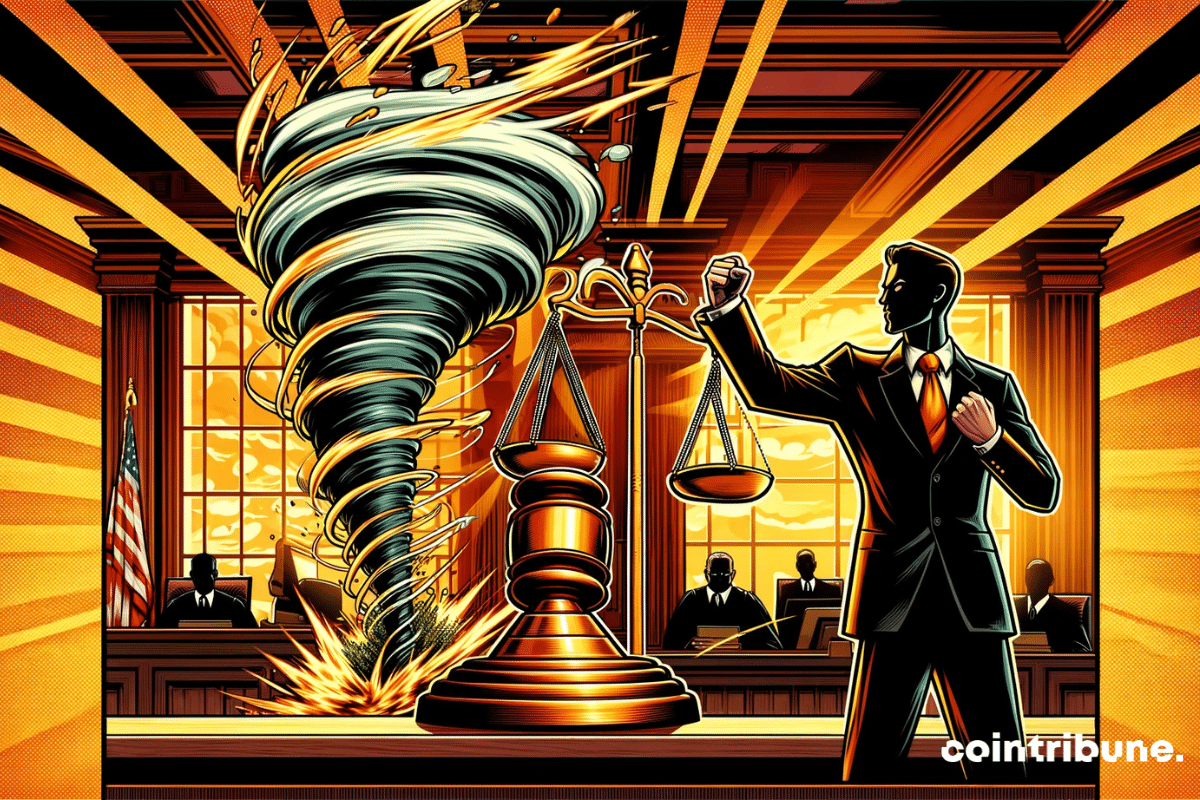Trump, future Patron Saint of crypto? After Ulbricht and BitMEX, CZ hopes for his blessing. Between edited X profile and angry senators, Washington becomes a blockchain theater stage.
Justice
Less than a year after a record $4.3 billion settlement with the US Department of Justice, Binance seeks to turn the page. The platform, a pillar of the global crypto ecosystem, is negotiating the lifting of the monitoring imposed by the authorities under the agreement. This move raises questions about the evolution of the balance of power between regulators and major players in the sector.
When cops play gangsters, even bitcoin becomes ransom money. In India, the Bhatt case reveals crypto-greedy police officers... sentenced to meditate in jail.
Saylor, former software pope turned bitcoin apostle, escapes justice... for now. But his passion for BTC dangerously flirts with the limits of accounting reality.
Crypto everywhere, cheap ransom, and an ex-trader freed at dawn: France invents discount kidnapping. Who will be the next digital wallet?
Embezzle 2 million, end up in prison, become a hero despite yourself... In crypto, even robbers become influencers. What if stealing was boosting business better than an airdrop?
When justice sees red, Ethereum opens the checkbook: $500,000 to save a coder accused of laundering whiter than white... even without a machine.
After more than four years of legal battle and a globally scrutinized decision, Ripple is ending its showdown with the SEC. The withdrawal of its appeal, along with the one expected from the regulator, seals the epilogue of a landmark dispute for the crypto industry. In an environment where every action by the authorities influences the market, this outcome permanently clarifies the legal status of XRP and redefines the regulatory framework in the United States.
For five years, the Ripple vs SEC case has crystallized tensions between crypto innovation and American regulation. On June 17, Ripple filed a strategic motion with Judge Analisa Torres, aiming to close the case without further judicial confrontation. If accepted, this initiative could accelerate the resolution of the dispute, but also redefine the relationship between blockchain companies and financial authorities in the United States. A legal precedent may be on the verge of being established.
A criminal crypto network, targeted tech figures, a suspect tracked down to Morocco. The case that shakes France and forces the state to react. Between violence, crypto, and security: dive into the burning file that exposes the flaws of an ecosystem.
Donald Trump has just lost a key battle over his tariff rights: a U.S. court has put the brakes on him. Discover how this decision shakes China, the markets, and challenges presidential powers.
In an ecosystem where judicial decisions influence both trajectories and technologies, a ruling made this week dampened the hopes of thousands of Bitcoin SV (BSV) investors. On Tuesday, May 21, the UK Court of Appeal partially dismissed a class action lawsuit against Binance and several other exchange platforms, bringing a halt, at least temporarily, to legal proceedings that have been under way for five years.
A key figure in institutional bitcoin, Michael Saylor now sees his legitimacy challenged. The co-founder of Strategy (formerly MicroStrategy), who has made BTC the core of his business strategy, is facing a class action lawsuit. Investors accuse him and his executives of misleading the market by concealing key information about the financial viability of their massive bitcoin accumulation policy. This represents a potential judicial setback for one of the staunchest advocates of the queen of crypto.
Strategy is buying bitcoins hand over fist, but a lawsuit attacks it for "concealing" risks. Is Saylor at risk of being checkmated in his strategy? Find out more.
Has a post by Javier Milei served as a lever for a concealed speculative operation? In Argentina, the judiciary is now interested in the potential gains that President Javier Milei and his sister could have derived from the artificial surge of the cryptocurrency $LIBRA. The investigation is taking a decisive turn with the lifting of their banking secrecy.
The legal battle between Ripple and the SEC has taken a new turn. While an amicable settlement seemed within reach, the federal court has sharply rejected the joint attempt from both sides. This setback reignites uncertainty around a clash that has become central to the regulatory future of cryptocurrencies in the United States and reaffirms the complexity of reaching a clear outcome in a case closely monitored by the entire industry.
The former CEO of Celsius, Alex Mashinsky, has been sentenced to 12 years in prison for fraud by a federal court in New York. A surprising decision, at a time when Donald Trump begins his second term with several presidential pardons granted to major figures in the crypto sphere. While markets were predicting a light sentence, this conviction shows that certain red lines will not be crossed.
As the standoff between Binance and the SEC shapes the regulatory future of crypto in the United States, both parties are seeking a new 60-day judicial stay. A strong signal, indicative of a possible strategic shift within the regulator, and a likely signing of an agreement between the two parties.
James Murphy is suing the U.S. government under a FOIA complaint, hoping to obtain documents regarding the identity of Satoshi Nakamoto, following revelations from a DHS agent about a meeting in 2019.
The billionaire Trump has transformed his setbacks into financial levers. Thanks to Truth Social and his crypto projects, he is multiplying his wealth by playing with expectations and speculations.
The battle between Ripple and the SEC lasted four years, plunging the crypto market into increasing uncertainty. Thus, investors remained skeptical, while XRP faced constant pressure on its legitimacy. Against all odds, the SEC dropped its lawsuits, a decision perceived as a historic victory for Ripple and a decisive turning point for its native token.
Durov flies to Dubai, leaving behind French justice. A stroke of genius or the last act before the fall? The crypto world holds its breath.
The SEC's case against Ripple is reaching a decisive turning point. After more than four years of legal confrontation, the U.S. Securities and Exchange Commission (SEC) appears ready to close this emblematic case. This trial, one of the most publicized in cryptocurrency history, has raised a fundamental question: Is XRP a financial security subject to U.S. stock market regulations? While the stakes extend far beyond Ripple and its native token, the outcome of the case could reshape the regulatory approach to cryptocurrencies in the United States.
A model employee? Rather an illusion. Behind her Excel files, Ho Kai Xin embezzled 5.7 million in crypto. The Singaporean justice system offers her a 10-year stay behind bars.
Legal battles between the SEC and crypto platforms have become commonplace, but a 60-day pause in the Binance case surprises observers. In a climate of rising tension around crypto regulation, this joint decision marks a strategic shift. At the origin of this development is the establishment of a Crypto Task Force within the SEC, an initiative that could reshape the authorities' approach to the industry. This moratorium presents two scenarios: a tightening of the rules or a willingness for more structured compromise with market participants.
Court decisions regarding cryptocurrencies play a key role in the evolution of sector regulation. Indeed, when it comes to stolen funds, the issue becomes even more sensitive, as it pits the principle of confiscation against that of restitution to the victims. The case of the Bitfinex hack in 2016, one of the largest Bitcoin thefts in history, crystallizes these tensions. After the seizure of 94,643 BTC by US authorities, the courts are questioning the appropriateness of returning them to Bitfinex. Such a decision could create a major legal precedent, which would influence the future management of cryptocurrencies seized by the courts.
A class action lawsuit has been filed against Pump.fun, the memecoin creation platform on the Solana blockchain, accusing it of selling unregistered securities and promoting "pump-and-dump" schemes. The complaint, filed on January 30, 2025, in a federal court in New York by Diego Aguilar, alleges that all cryptocurrencies issued on Pump.fun are "unregistered securities", representing an evolution of Ponzi schemes and pump-and-dump! The platform is said to have generated nearly 500 million dollars in fees related to these activities.
Ripple Labs recently requested the U.S. Court of Appeals for the Second Circuit to set a deadline of April 16, 2025, for filing its counter-brief in its ongoing litigation with the SEC (Securities and Exchange Commission). This request, which could be decisive for both parties, represents a legal strategy by Ripple to challenge certain rulings of the district court that favored the SEC regarding the sales of the XRP crypto.
A federal court in Texas has just overturned the sanctions imposed against the crypto mixing protocol, Tornado Cash. This decision marks a turning point in the regulation of privacy technologies and could redefine the authorities' approach to decentralized protocols.
The dance stops for American TikTokers. Between Chinese threats and political pirouettes, TikTok is stretching itself thin. Trump promises, but ByteDance resists. The suspense continues.
